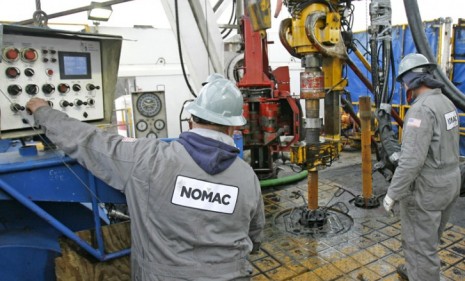Natural gas: As bad for the environment as coal?
Some sources of natural gas don't deserve their green reputation, says a new study. In fact, unearthing gas might actually heat up the planet more than coal emissions

A free daily email with the biggest news stories of the day – and the best features from TheWeek.com
You are now subscribed
Your newsletter sign-up was successful
Natural gas has been widely hailed as a cleaner alternative to fossil fuels, but a new study by Cornell University researchers suggests it's not as green as many people think. Using hyped, unconventional sources of natural gas, such as that extracted from shale formations, say researchers, could do more to heat up the planet than mining and burning coal. Does natural gas really deserve its green reputation? A brief guide:
Doesn't natural gas burn cleaner than coal?
Absolutely. Researchers don't dispute that burning natural gas is cleaner than burning other fossil fuels. Natural gas emits 30 percent less carbon dioxide than oil, according to the Union of Concerned Scientists, and 43 percent less than coal. The problem with natural gas — particularly unconventional shale-gas extraction — comes before it even gets to the power plant.
The Week
Escape your echo chamber. Get the facts behind the news, plus analysis from multiple perspectives.

Sign up for The Week's Free Newsletters
From our morning news briefing to a weekly Good News Newsletter, get the best of The Week delivered directly to your inbox.
From our morning news briefing to a weekly Good News Newsletter, get the best of The Week delivered directly to your inbox.
How so?
Huge amounts of methane, the chief component of natural gas, escape when the fuel is pulled from the ground. To tap previously inaccessible pockets of gas trapped in shale deposits, energy companies use hydraulic-fracturing, or "fracking" — a high-pressure injection of water, sand, and chemicals — to break up the shale and free the gas. In the process, researchers say, as much as 7.9 percent of the underground methane seeps out or is intentionally vented.
Is that really so bad?
Cornell's scientists say methane is a much more powerful greenhouse gas than carbon dioxide and that "the footprint for shale gas is greater than that for conventional gas or oil when viewed on any time horizon."
A free daily email with the biggest news stories of the day – and the best features from TheWeek.com
Does the natural gas industry buy these numbers?
No. Natural gas producers say the Cornell study relies on data that even the researchers themselves have conceded is incomplete. Industry executives point out that if they let 7.9 percent of shale gas simply float into the atmosphere, they would be losing $6 billion a year. "These are huge numbers," says Range Resources' Mark D. Whitley, as quoted in The New York Times. "That the industry would let what amounts to trillions of cubic feet of gas get away from us doesn't make any sense. That's not the business that we're in."
Sources: The Atlantic, Fast Company, NY Times, Mother Nature Network
-
 What to know before filing your own taxes for the first time
What to know before filing your own taxes for the first timethe explainer Tackle this financial milestone with confidence
-
 The biggest box office flops of the 21st century
The biggest box office flops of the 21st centuryin depth Unnecessary remakes and turgid, expensive CGI-fests highlight this list of these most notorious box-office losers
-
 What are the best investments for beginners?
What are the best investments for beginners?The Explainer Stocks and ETFs and bonds, oh my